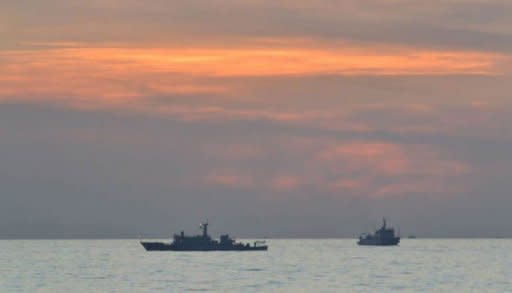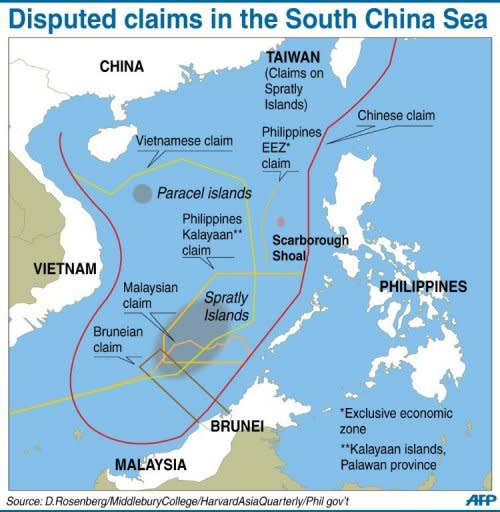Philippines, China seek to ease tense ship standoff
The Philippines said Friday it had made progress in efforts to end a tense standoff with China in the South China Sea but each side was still refusing to remove its ships from the disputed area. Foreign Secretary Albert del Rosario told reporters the two countries had agreed to maintain the "status quo" and not take any further provocative actions at the tiny islets as they sought to negotiate a resolution. "We have been able to arrive on some agreements. There are areas where we moved forward and there are areas which still remain a challenge," del Rosario said after meeting with China's ambassador to Manila, Ma Keqing. "Both sides have agreed not to do anything that would escalate the situation there any further." Del Rosario expressed hope that further progress would be made in another round of talks on Friday night. The dispute began on Sunday when Philippine authorities found eight Chinese fishing boats at Scarborough Shoal, (230 kilometres, 140 miles) west of the country's main island of Luzon. The Philippines accused the fishermen of being there illegally, asserting the area was Philippine territory because it was within the country's 200-nautical-mile exclusive economic zone, as recognised by international law. However China, insisting that the shoal was Chinese territory, sent three civilian maritime surveillance ships to prevent the Philippine Navy's largest vessel from arresting the Chinese fishermen. The Philippines withdrew its warship on Thursday, replacing it with a coast guard search-and-rescue vessel in what was widely seen as an effort to lower tensions by taking away the immediate threat of military force. Foreign department spokesman Raul Hernandez said Friday the Chinese embassy had informed the Philippines that one of the three Chinese vessels had also been withdrawn. The Philippine coast guard has dispatched a second vessel to back up the 56-metre-long (184-foot) rescue ship in Scarborough Shoal but it had not reached the site, a coast guard spokesman said. China claims all of the South China Sea as its own, even waters up to the coasts of other countries. Aside from the Philippines and China, Taiwan, Vietnam, Malaysia and Brunei also claim all or parts of the waters as their own. The rival claims have made the sea one of Asia's potential flashpoints for military conflict. The Philippines and Vietnam complained last year of increasingly aggressive acts by China in staking its claim to the South China Sea. However this week's standoff is the highest-profile in recent years.





